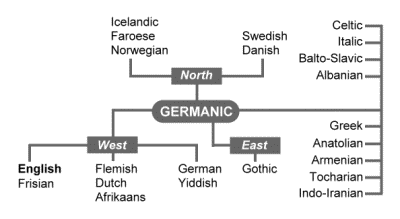6 Ways to Immediately Improve Your English Communication Skills
’Words don’t come easy.’
You may have memorized endless lists of vocabulary, you may know all the grammar needed to hold any conversation and still find yourself at a loss when wanting to express yourself.
There are various reasons behind this phenomenon – some of them more obvious than others.
Recommended for you:In this article, I would like to give you a few tips to help overcome the difficulties you might be experiencing, using some of the simplest methods to improve your English communication skills.
How to learn English words
How to Memorize English Words
1. Slow Down Your Speaking Speed
You might be an eloquent speaker when it comes to your mother tongue, but expecting the same standards from yourself when speaking in a foreign language may not be very realistic.Especially, if you’re at the early stages of learning. Learners are often told not to worry about the mistakes they’re making, however, it is easy to understand why you would like to make a good impression on your audience.
To overcome this difficulty, you may try slowing down your speaking speed.
Nobody will hold it against you if you speak more slowly and clearly. Great speakers do the same to get their message across. Selecting your words carefully may also be seen as a sign of respect towards your audience. It shows that you want to give them the best possible answer.
Recommended for you:
Collocations with Traffic!
How to get the most out of private speaking lessons?
2. Give Yourself Time to Think
You may be worried that the people you’re talking to are impatient and would like you to say what you want as quickly as possible.
First of all, it may not be true – people often prefer a well-thought-out answer to a rushed one.
So just relax.
Another practical thing you can do is equipping yourself with fixed phrases you can use when remaining silent doesn’t seem to be an option. Here’s an example:
- Why is there so much violence on TV? That’s a good question. Let
me think for a moment, I haven’t really thought about it before. Well, I
suppose…
Fixed or set phrases are phrases whose words are usually fixed in a certain order. They can be verb patterns, idioms, collocations – basically anything we always say in one particular way. For example,
- during the day
- in the meantime
- It’s been a long time since
- Sorry to bother/trouble you, but…
- Would you mind if…?
- Oh, come on!
- I’m just kidding!
- For what it’s worth,…
- To be right/wrong about
- Tit for tat/an eye for an eye, a tooth for a tooth
Recommended for you:
15 Business English Idioms and Phrases In Use
List of Sentence Connectors in English with Examples!
3. Learn Sentences, Not Only Words
In a way, this will take the pressure off too. When you learn a new word, try to memorize a couple of sentences that contain it.
There might come a time when you can use one particular sentence with little, or no alteration at all. Unfortunately, many people learn words by heart, but have no idea how to use them in a sentence.
It will be such a relief not having to worry about whether the sentence is correct grammatically or not. Let’s look at an example:
to appreciate = to recognize the value of something/somebody
- I think it’s necessary to feel appreciated in a relationship/ at work.
- I appreciate all your hard work.
Recommended for you:
Spa Fitness Gym Workout Massage Vocabulary and Dialogs
SHOPPING Phrases, Dialogs and Phrasal Verbs!
4. Learn to Listen
When speaking in a foreign language, you might be so focused on what you are saying and whether it’s correct or not, that you forget to listen to what others are saying.This is a big mistake as they might be using the exact words or grammar you’ll be needing later on. So pay attention to what’s being said around you, it’s your most important resource at the time of speaking to someone.
Recommended for you:
Great ways on how to improve your listening skills
Difference Between LISTEN and HEAR + 11 Examples
5. Practise Your Interrogatives
We also need to keep in mind the fact that communication is a two-way process. Not only does it make you seem uninterested – even rude – if you don’t ask questions, you might also end up being the one who has to do all the talking. So, when you’ve run out of ideas about what to say next, remember: others might have something to add.
- What are your views on that?
- How about you? What do you think?
- Why do you think there’s so much violence on TV?
Interrogatives can be quite tricky, so make sure you spend enough time learning the correct ways of asking questions.
Recommended for you:
What are the main types of sentence functions?
How to Form Questions in English?
6. Produce, Produce, Produce
As I said at the beginning of this article, you might know a lot about the language, but this is passive knowledge that must be activated somehow. Your aim is to be able to produce correct English; practice is undeniably the best way to learn and improve.
Writing is one way of producing language; it may help you get used to and reflect on the ways English operates, which, in turn, might prove to be useful when speaking.
Speaking, on the other hand, is a much more spontaneous process and nothing prepares you for it better than actually doing it. So, find people you can practise with – either on Skype, or on language exchange sites, or here on MyEnglishTeacher.eu with the help of our native teachers – I have a feeling that it will be a great experience.
http://www.myenglishteacher.eu/blog/ways-to-improve-your-english-communication-skills/




